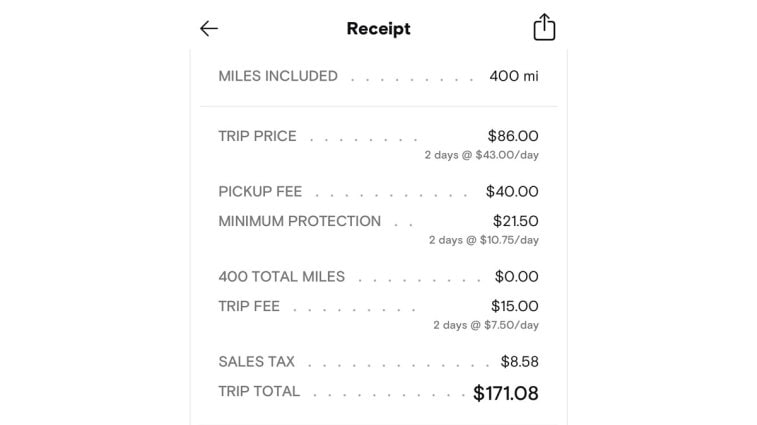Quick Facts About Turo
- The peer-to-peer car-sharing marketplace lets car owners and enthusiasts rent their vehicles to others in the United States, Canada, Australia, the United Kingdom, and France.
- Turo’s rental marketplace is safe to use, and listings include everything from luxury sports cars to the latest electric vehicles, SUVs, minivans, vans, cargo vans, and more.
- Using Turo is an excellent way for car buyers to test-drive a vehicle for an extended period to see if it works for their lifestyle.
Turo is a peer-to-peer car-sharing marketplace that lets car owners and enthusiasts rent their vehicles to others around the globe. The Turo marketplace, often called “the Airbnb of cars,” is an alternative to renting from a vehicle rental agency at an airport or anywhere you travel or need a vehicle. For car buyers, Turo is a great way to test drive a vehicle for an extended period to decide if it fits their needs and lifestyle before making a big purchase decision.
Sometimes, renting from Turo can be cheaper than from larger car rental companies.
Another perk for renters is that owners often drive the vehicle directly to them or drop it off at a predetermined location, like an airport or train station parking lot. Read on to learn how Turo works for renters and owners.
How Turo Works
Turo’s rental marketplace is safe to use, and listings include everything from Lamborghini luxury sports cars to the latest electric vehicles, hybrids, SUVs, minivans, cargo vans, and more. Turo has expanded from its home base in the U.S. to offer rentals in France, Australia, the U.K., and select provinces in Canada. Here’s how it works for car owners and renters.
Renters
- Sign up for the service online on the Turo app, which includes securely adding your driver’s license information to your profile and showing you’re approved to drive.
- It’s also easy to access a Turo vehicle via Uber Rent.
- You can rent a vehicle by selecting insurance coverage (if needed) and meeting the host or getting instructions to pick it up.
- Turo lets you cancel your rental up to 24 hours in advance with a full refund, unless you opt for a car with a nonrefundable trip discount when booking.
- Once you get the car, check in using the Turo app.
- For your protection, the app requires you to take photos of the vehicle inside and out before you drive away. When you check the car using the app, you submit another set of images to prove you turned in the car and show the return condition.
- Owners can rate the renters, just as renters can rate owners and their vehicles.
- While Turo operates in 50 states, cars may not be available in every location where you need one.
- In case you wondered, Turo banned Apple AirTags earlier this year as a means to track a vehicle you may be renting.
- Renters have a 2-hour window from the start time of the rental to retrieve the vehicle before being considered a no-show.
- Communication is easy through the app, including around flight delays or cancellations.
- Be aware of extra costs such as pickup and trip fees. See the example below.

PRO TIP: I rented a 2023 Volkswagen Jetta from a host who met me in front of my terminal at Ronald Reagan Washington National Airport. Another time, I rented a 2022 Ford Mustang (at the same airport), and the owner unlocked the car for me upon arrival. The keys were left in the console, and I was required to pay the airport parking fee. The check-in was fast, the car was immaculate, and up to 400 miles were included. The overall Turo rental cost was cheaper than that of well-known agencies at the airport. The total cost for the Jetta was $171.08. The cost breakdown: A rental cost of 2 days at $43, plus a pickup fee of $40. I opted for minimum insurance protection, or $21.50 (2 days at $10.75). The trip fee was $15. It was simple to use the app. The car came with an EZ-Pass for the toll roads, which I was billed for later if I used the service (and I did). When it was time to return the car, I communicated closely with the owner, who met me at my terminal when I was ready to return the vehicle. The owner was on time. There was no rental bus to the airport terminal needed. Also, the wonderful host, who has a fleet of cars, offered a 10% discount for a return rental within three months.
Owners
Car owners can rent out their first vehicle on the marketplace once they set up a Turo account.
- Listings are free, and Turo vets all renters for car owners.
- To prepare your marketplace listing, you’ll need photos of the car inside and out, your license plate number, and your vehicle identification number (VIN).
- Owners can set their prices, rules, and availability.
- Turo pays owners 60% to 90% of the trip price by direct deposit.
- A third-party company protects owner vehicles with a standard $750,000 liability insurance protection plan.
- Once a vehicle is listed, owners can expand their business by renting more cars.
- According to Turo, owners of vehicles valued between $25,000 and $35,000 can make an estimated average of $10,868 (for one car) to $97,814 (for nine vehicles), not including vehicle maintenance, cleaning, insurance, and deductibles.
- Peer-to-peer car-sharing legislation in some states could affect your business. Read Turo’s information about these regulations and understand the laws governing where you operate your car-sharing business.
- Most Turo hosts making over $600 yearly will receive a 1099-K tax form to file with the Internal Revenue Service.
- Owners must maintain over 30% 5-star maintenance ratings. The ratings are based on the last 10 trips of the vehicle.
Is Turo Legit?
San Francisco-based Turo is a legitimate peer-to-peer car rental company that matches car owners with willing renters. Shelby Clark founded it in 2009 as RelayRides. The company has had plans to go public since 2021, but those plans are shelved for now.
RELATED: Is Now the Time to Buy, Sell, or Trade in a Car?








